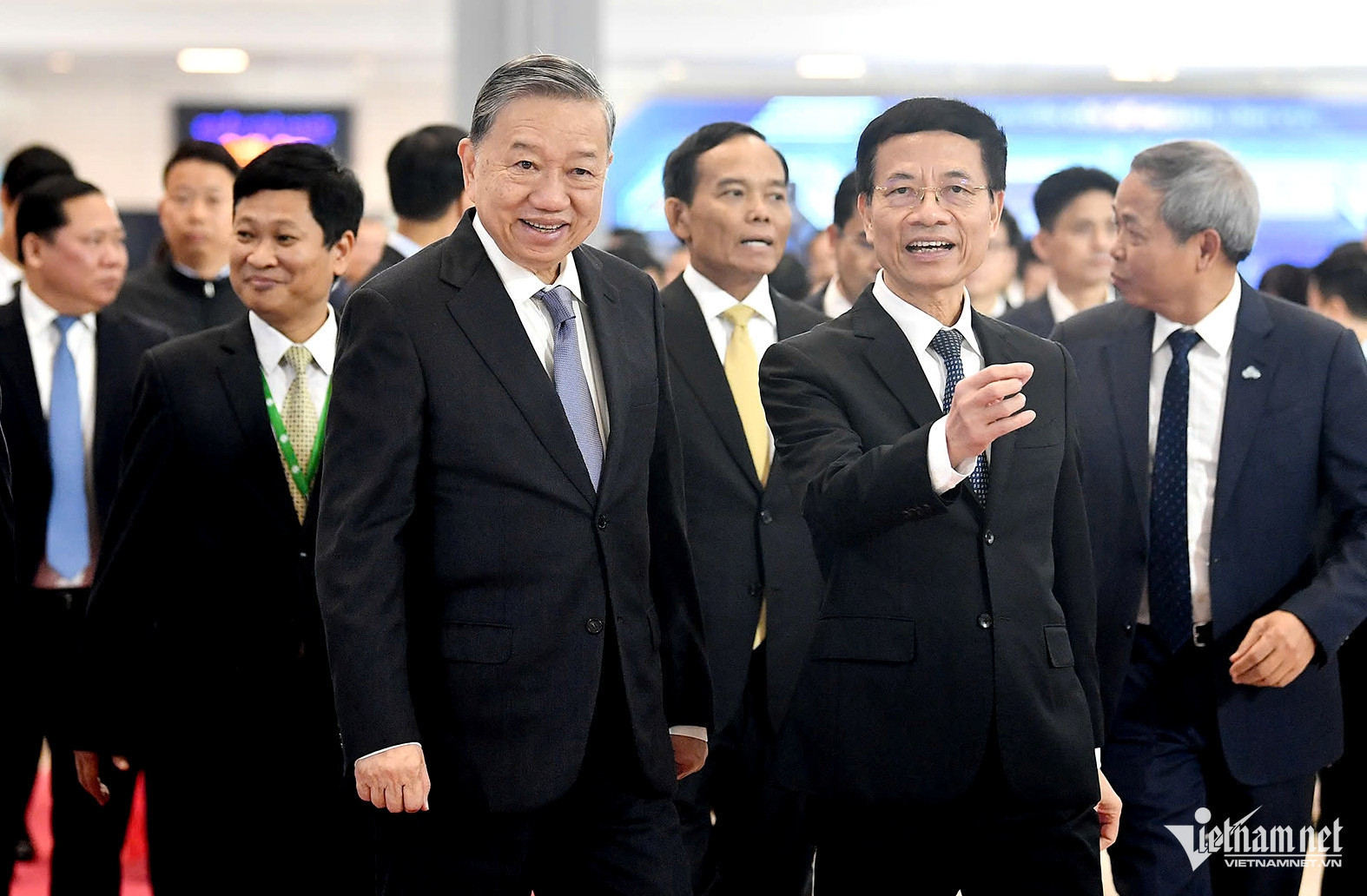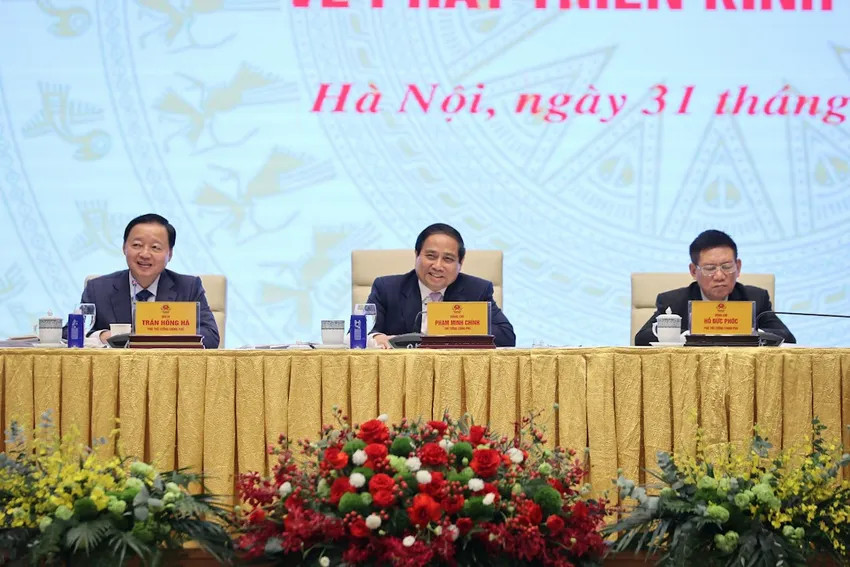Inviting individuals whose reputations are already proven can be far more effective than traditional recruitment procedures.
Streamlining and restructuring to enhance performance and efficiency is essential for national resilience in a world fraught with uncertainty and change. Such transformation requires bold, revolutionary change across many areas.
Major strategic decisions have already been institutionalized through constitutional amendments and a series of legislative reforms to unleash resources for national development.
The Party and State actively encourage and create the best conditions for all Vietnamese people - wherever they are and in whatever field they operate - to participate in national revitalization. Numerous open, candid dialogues between national leaders and businesspeople have been held, sharing a common aspiration: to build a wealthier Vietnam.
This enthusiasm among entrepreneurs and the public reflects great anticipation for meaningful reforms.
A shift in thinking: From management to development facilitation

Recently, the Ministry of Home Affairs proposed that state agencies could invite prominent business leaders, lawyers, and top scientists to assume leadership and management roles.
This marks a bold and open stance by the State toward the non-public sector, opening new pathways to attract high-caliber human resources to public service beyond the limitations of traditional hiring rules.
In reality, such candidates have often gone through the rigors of entrepreneurship, enduring the highs and lows of a fiercely competitive market, and have proven their worth through societal recognition.
Their credibility does not lie in medals or academic credentials, but in their success and contributions in their respective fields.
Thus, attracting individuals with well-established reputations is likely to yield more effective results than conventional recruitment routes.
While civil servants typically undergo rigorous training and are nurtured within the public sector system before assuming leadership roles, the truth remains that many lack true competence. Instead, they advance primarily through seniority, a side effect of a rigid bureaucratic system - one of the public sector’s most persistent and intractable problems.
The draft policy outlines specific criteria for such external candidates: individuals must have professional experience, a proven track record of delivering in comparable roles, high-level expertise, and a solid reputation within their field. They must also demonstrate success through concrete outcomes applied in practice, directly related to the tasks assigned.
This framework identifies two critical qualifications: alignment with the job’s requirements, and more importantly, having earned public trust through practical achievements.
A noteworthy aspect is that service time under such labor contracts would count toward salary grade calculation if the individual is later officially appointed as a civil servant.

The integration of long-term strategies for cultivating civil servant leadership with high-quality external recruitment not only enhances public sector efficiency but also injects vitality and real-world insight from those who’ve succeeded and stumbled in their careers.
This helps ensure that public policies and legal frameworks increasingly reflect the transition from a management mindset to one focused on development facilitation - right from institutional design to law implementation.
The draft regulation proposes a contract term not exceeding 24 months for leadership and specialist roles. This duration is sufficient to evaluate the individual’s real capabilities through their performance, while also allowing time for them to decide whether to commit to a longer tenure in the public sector.
Reality poses a considerable gap
While this recruitment approach has clear advantages, it is not without challenges. Those accustomed to market-driven practices may struggle in a new working environment that demands not only competence but also pride in upholding the integrity and responsibilities of a public service system that values honesty and action.
Problem-solving in the private sector often focuses on maximizing profits, which may not fully prepare someone for roles requiring long-term vision and consideration of environmental and social welfare implications - especially in public leadership positions.
The permitted leadership roles for external hires include:
Leading the development of legal documents, programs, projects, and proposals on economic and scientific innovation
Overseeing digital transformation, AI development, and administrative reform
Managing programs and assignments tied to specific time-bound objectives
Executing other leadership duties as determined by the relevant authority
Within this list, some responsibilities are overly broad, vague, or require long-term strategic vision. They may demand collective intelligence and leadership with depth and foresight.
These concerns warrant further study. Initially, it may be more appropriate to appoint external talents to manage specific socio-economic development projects.
For scientists, especially in social sciences, greater consideration is needed. The gap between theoretical research and practical management is often vast and cannot be bridged within just a few years.
Dr. Dinh Van Minh
Former Head of the Legal Department, Government Inspectorate of Vietnam